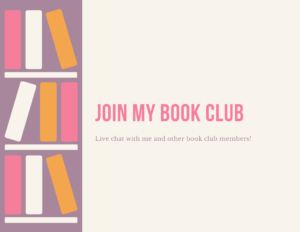Guest Post from Gemma Burgess
HOW TO BE A WRITER WITHOUT LOSING YOUR LIFE (OR YOUR MIND)
Let’s face it, you’re busy. We’re all busy. We’ve got jobs, families and friends demanding our time, and sometimes we want to go to the gym, or read, or cook, or run errands, or watch TV, or maybe just stare out the window for an hour or two.
But we also want to write.
And combining all of the above without losing your mind is very, very difficult.
Full caveat: I don’t have the definitive secret that’ll magically help you write a book. I can just tell you what I do. These rules have helped me to fit two novels, two TV pilots, another book proposal, an overseas wedding and a 9-5 job as an advertising copywriter into the last three years. And I only have a screaming meltdown every now and again. (Kidding.) (Kind of.)
1. Make a job contract with yourself
I think of writing books as being my real job. And I can’t take a day off, or I’ll get fired. So everything else revolves around it. Once you decide to make bookwriting the focus of your life, everything else becomes a lot easier. (And more fun. These days, I’d rather write than do almost anything else, except be with my husband. And sometimes even more than that. Shh. Don’t tell him.)
2. Write smart
Figure out when your brain works best. Mine is sharpest first thing in the morning, then it gets flubbier as the day goes on. So I wake up at 5am or 6am and write my little socks off. Then I go to work.
3. Use time carefully
Sometimes great copy comes from tight deadlines. Every time you’ve got 20 minutes spare – on a bus, on a plane, before dinner – start writing. When you’re going to sleep at night, think about your plots, and let your mind wander. Great ideas come when you’re in that semi-dreamlike state. (Just keep a pen and paper by your bed.)
4. Set objectives
A lot of writers seem to set word objectives. “I will write 10,000 words by Friday.” For me, writing really is not about quantity, it’s about quantity. I could write 10,000 words by the end of the day, but would they be well written? Would the dialogue zip, would the characters be well-defined, would the story play out at just the right pace? Probably not. Instead, I set an objective to finish a scene. Nail a conversation. Reveal a character.
5. Prioritize commitments
This is where it gets hard. I can’t have the social life I that used to and be a writer. I wish I could, but it’s not possible. I say ‘no’ to almost everything, and plan no more than one night a week socializing with friends, and one date night with my husband. I don’t watch TV (except boxsets on Sundays), and I don’t cook anything that takes more than 15 minutes (soup, salad and grilled chicken, all the way). I spend no more than 20 minutes a day on my blog, Twitter, or Facebook. Social media is interesting and fun… but it won’t help me write my next book. And that, as I keep reminding myself, my job.
6. Give yourself a break
Sometimes you can’t be Little Miss Delegate. Sometimes life is too demanding. Sometimes your friends really need you, or you get fed up with saying ‘no’ to everything. When that happens, either give yourself three days away from the book and enjoy life (get drunk! Go shopping! Watch The Kardashians!), or give yourself three days away from the world (including the internet) and write. Either way, don’t feel guilty. And if you need to, see if you can restructure your day job around your writing. I’m a freelance copywriter, so I can arrange to have four-day weeks or three-day weeks. I know how lucky I am to be able to do that, but a lot of other writers come to the same arrangements with their employers. So can you.
7. Make downtime work
I find it very hard to switch from writing to my (pre-book) downtime favourites: talking to people, reading or watching TV. I think it’s because my brain has been producing words and stories for hours, so absorbing is strangely stressful. These days when I’ve come to a natural pause, I go for a walk, or work out, or sketch something (surprisingly mind-clearing!) – anything not involving words or storytelling. When I feel refreshed, I start again. And again. And again. And eventually, I have a book.
I hope these points help you work out how to make writing work for you. Everyone’s solution is different, as our lives and writing approaches are different. And I just want to add again that I don’t really know what I’m doing, of course – but I think the secret to life is that – shh! – no-one knows what they’re doing! All we can do is do our best, work hard and have fun. Good luck. You can do it. x

